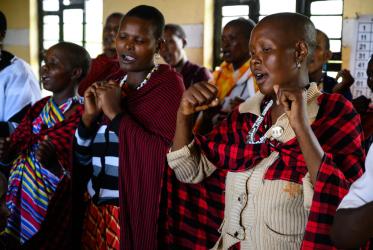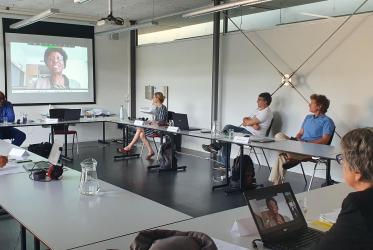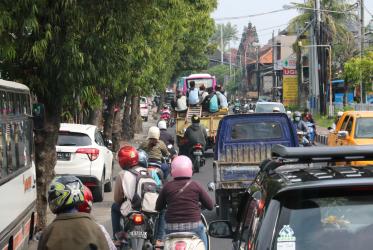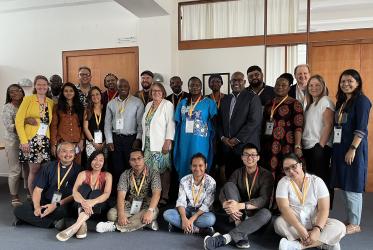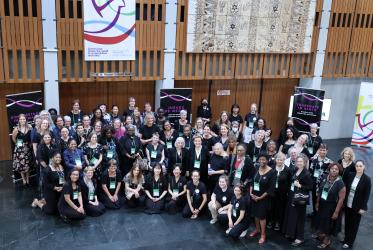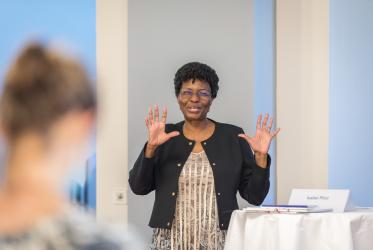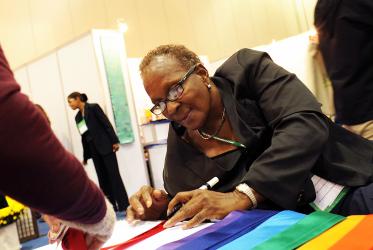Displaying 21 - 40 of 299
Churches prepare for weekend of prayer and action against hunger
12 October 2022
WCC’s Ecumenical Water Network attends Pilgrim Team Visit
30 August 2022
An assembly mood spreads across Asia
25 August 2022
GEM School grounds economic justice biblically
06 July 2022
Called to Transformation - Ecumenical Diakonia
09 June 2022
